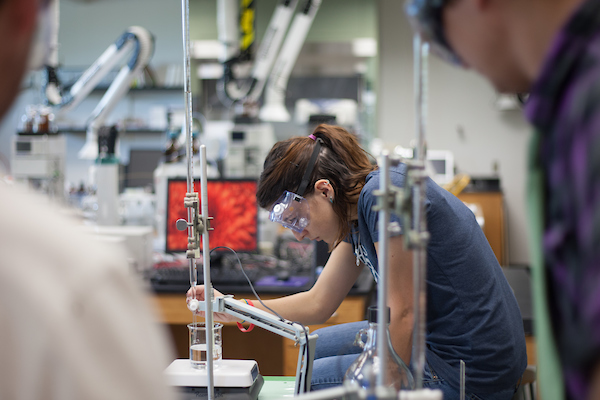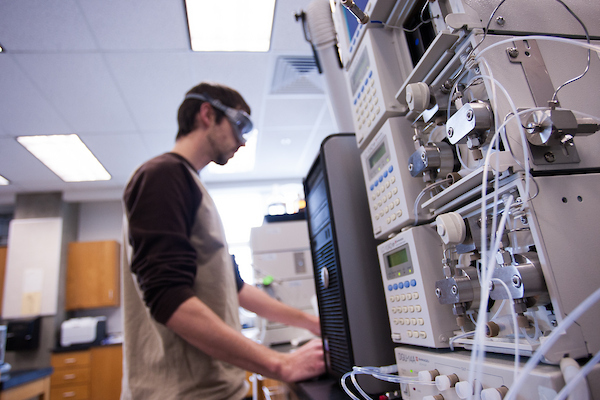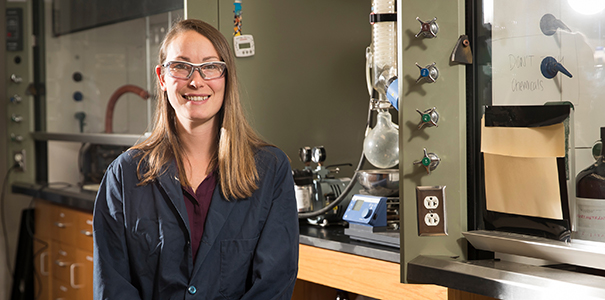Chemistry and Biochemistry
Academic Department
From tiny atoms to big reactions, chemistry helps us understand and improve the world around us. With small classes, hands-on research, and a focus on you, our program prepares students for exciting careers in science and beyond.
Curious about how things work? Start your journey here.
Boost Your Lab Career
The new undergraduate certificate in Analytical Chemistry will give you the skills and knowledge to excel in chemistry laboratories. This 18-credit program prepares you for hands-on work in industry, research, and other lab-based careers, helping you take the next step in your chemistry journey.
Hands-On Learning, Real-World Impact
Our department sparks curiosity and encourages hands-on learning, giving students the opportunity to explore science through real-world experiences. With small class sizes, personalized guidance, and a wealth of research opportunities, we provide an environment where you can actively engage in discovery and sharpen your critical thinking skills. This approach deepens your understanding and equips you for meaningful, successful careers in science—and beyond.
Turning Chemistry Into a Career
With a Chemistry degree, you can pursue exciting careers in pharmaceuticals, biotechnology, environmental science, forensics, materials science, professional health schools and beyond. You use your chemical knowledge to make a real impact—whether developing new medicines, protecting the environment, analyzing forensic evidence, innovating materials, or shaping policy, your skills prepare you to solve real-world problems and improve lives and communities.
Why Chemistry and Biochemistry
Friendly and Supportive Education
At UNC, chemistry students get personalized learning. You’ll join a small, welcoming department where professors know your name and want to help you succeed. Students get real, hands-on research experience and one-on-one support from faculty.

A Degree Fit for You
At UNC, you can study Chemistry in a way that fits your interests and career goals. Whether you’re drawn to Forensic Science, Biochemistry, Industrial Chemistry, Pre-Health, or want to inspire the next generation as a science teacher, you’ll find a path here. With small classes, hands-on labs, and professors who know you by name, you’ll get the support and real-world experience you need to succeed.

Career Opportunities
A degree in chemistry can open many career doors. In 2024, chemists earned a median salary of $84,150. Our graduates work in jobs like health care, biotech, medicine, protecting the environment, crime labs, education and government. Studying chemistry at UNC prepares you for a wide range of exciting and rewarding careers after graduation.
Photo By ERIC BELLAMY Chemistry Dept. Portraits

Excellence in Chemistry: ACS-Certified Programs
Chemistry and Biochemistry offer two American Chemical Society (ACS)–approved programs. With ACS-approved curricula, both programs provide rigorous training that meets national standards and prepares graduates to make a meaningful impact in the chemical sciences.
UNC Chemistry brochure.






